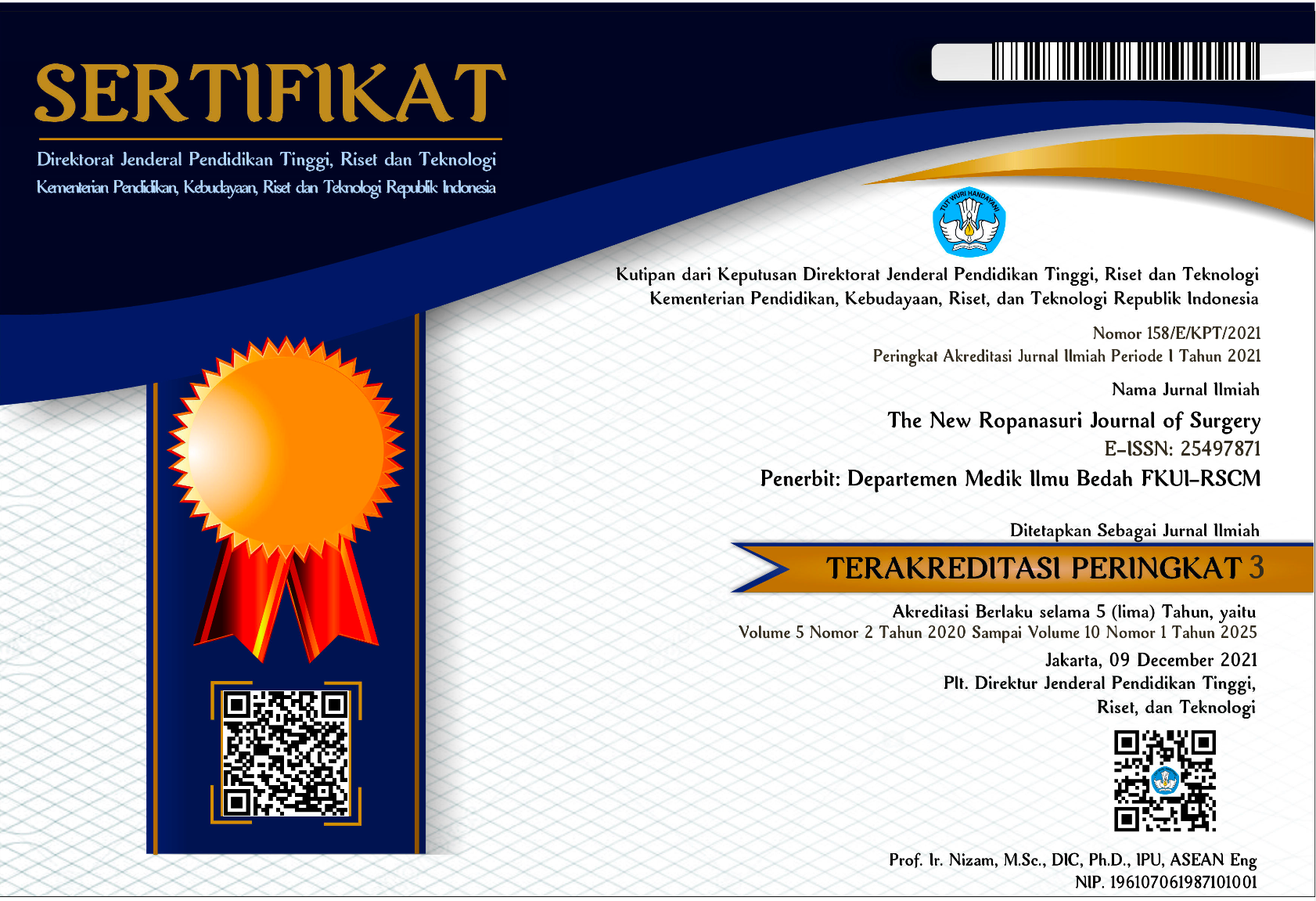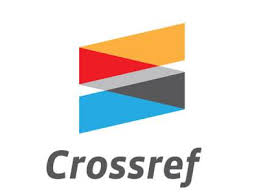Abstract
Introduction. Colorectal cancer is the second leading cause of death worldwide, with a high mortality rate. This study investigates the predictive value of the neutrophil–lymphocyte ratio (NLR) and carcinoembryonic antigen (CEA) in predicting the survival rates of colorectal cancer patients in Indonesia.
Method. This retrospective cohort study enrolled the colorectal cancer stage I–IV patients treated at Cipto Mangunkusumo General Hospital (CMGH). The independent variables are NLR and CEA, while the dependent variable is the five–year survival of colorectal cancer. The log rank test proceeded to find a correlation between NLR and CEA with 5–year survival, and the Cox proportional hazard regression proceeded to analyze the predictive value.
Results. Of the ninety–six subjects who met the inclusion and exclusion criteria who were enrolled, 6.25% had high NLR, and 66.6% had high CEA levels. The overall five–year survival rate was 35.4%. However, the proportion of subjects with normal NLR had a higher five–year survival rate compared to those with high NLR, and the same pattern was observed for CEA levels. Subgroup analysis based on the cancer stage showed a significant association between high NLR and increased risk of mortality in TNM stages I–II. Still, no significant difference in survival based on NLR was observed in stages III–IV.
Conclusion. The preoperative NLR ratio and preoperative CEA did not show a predictive role in colorectal cancer survival. However, when stratifying by cancer stage, there was a significant difference in preoperative NLR levels between the deceased and non–deceased groups in patients with stage I–II colorectal cancer
Recommended Citation
Putranto, Agi S. and Kamaruddin, Jackson
(2023)
"Preoperative Neutrophil–Lymphocyte Ratio and Serum Carcinoembryonic Antigen as Predictive Factors of Colorectal Cancer Survival,"
The New Ropanasuri Journal of Surgery: Vol. 8:
No.
3, Article 2.
DOI: 10.7454/nrjs.v8i3.1181
Available at:
https://scholarhub.ui.ac.id/nrjs/vol8/iss3/2













